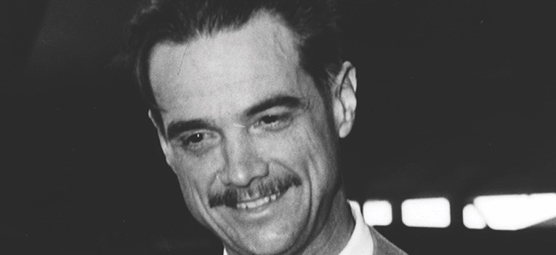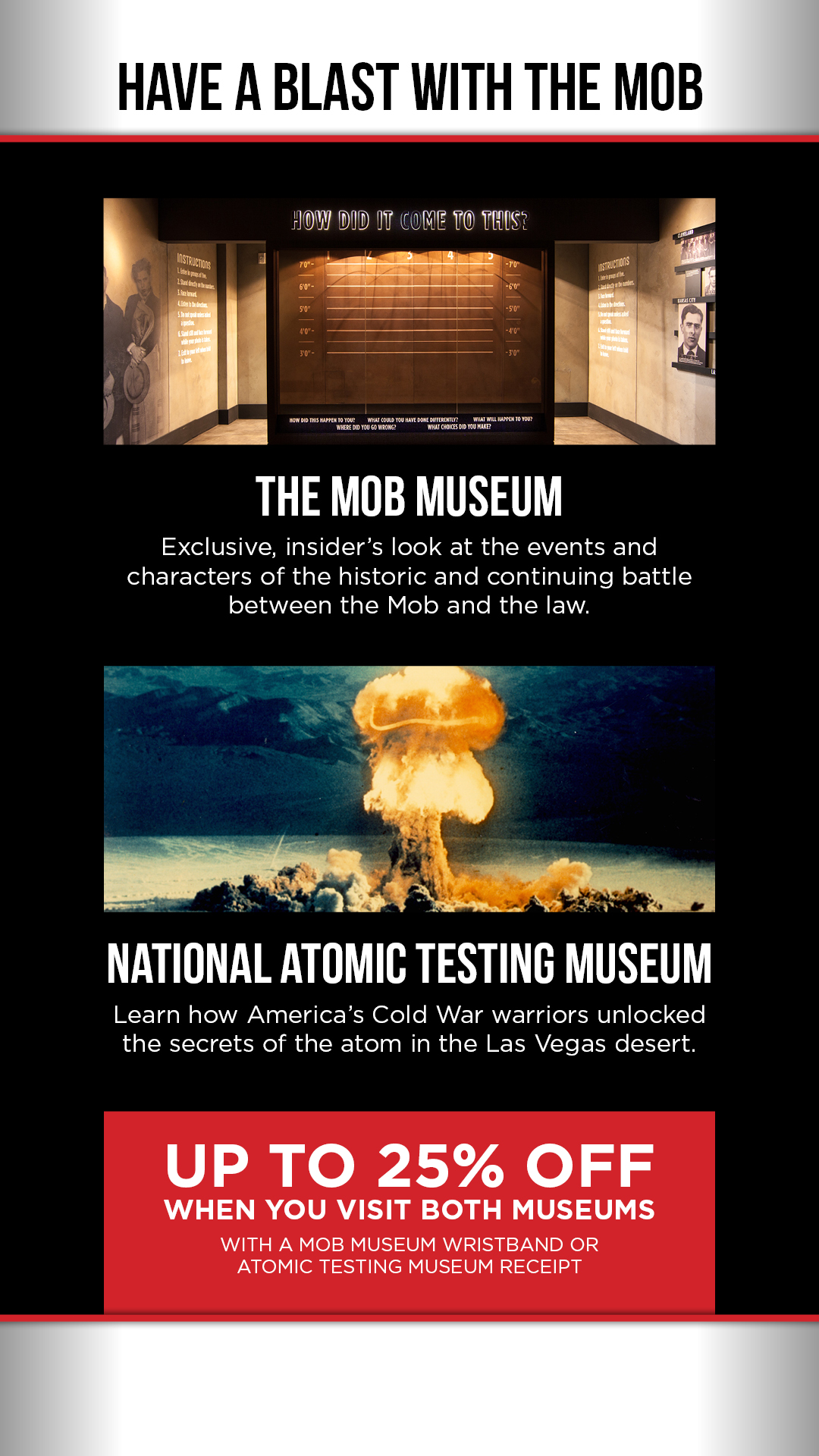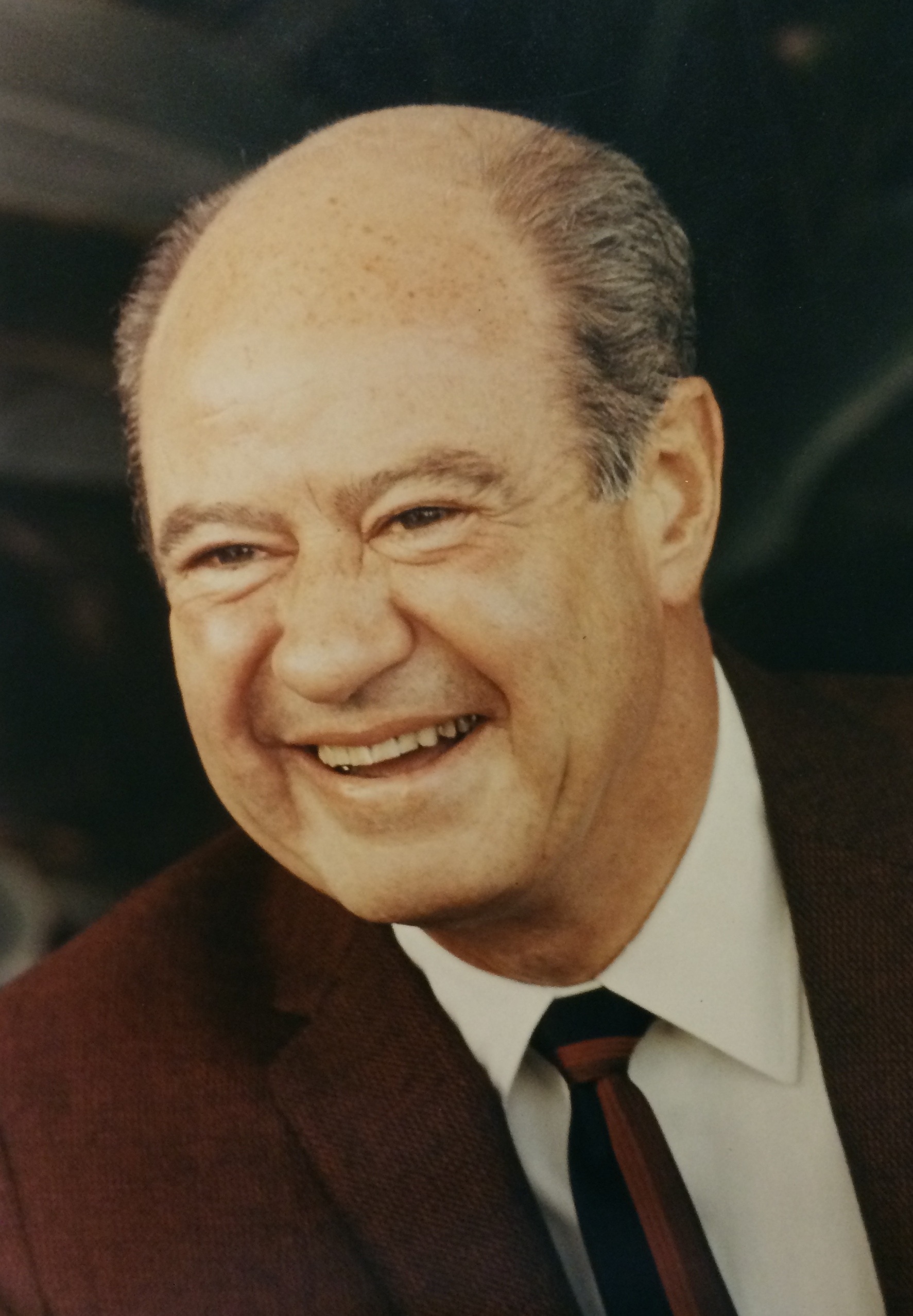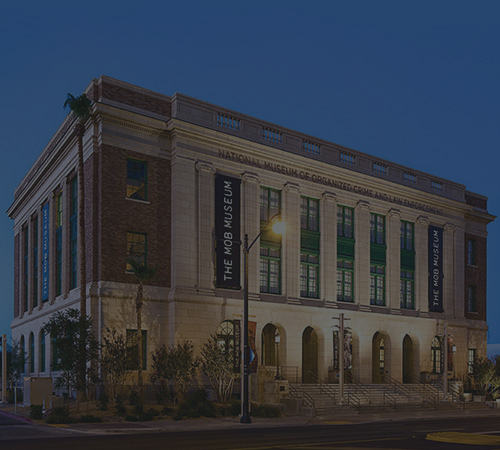Howard Hughes and nuclear testing
Mob Museum and Atomic Testing Museum partner to provide up to 25% discount to guests visiting both museums

When the reclusive billionaire Howard Hughes arrived in Las Vegas 50 years ago this month and took up residence on the top floor of the Desert Inn Hotel, he went on a legendary buying spree. He bought land, airports, mining claims, casinos and a TV station.
 As his empire expanded, Hughes became more involved in local, state and national politics. One of his biggest political goals was to stop the federal government from conducting underground nuclear explosions 60 miles north of Las Vegas.
As his empire expanded, Hughes became more involved in local, state and national politics. One of his biggest political goals was to stop the federal government from conducting underground nuclear explosions 60 miles north of Las Vegas.
Hughes was no peacenik, but he feared the environmental effects of nuclear testing on his investments in Las Vegas and beyond. He thought tourists and potential residents would stay away for fear of being exposed to radiation. While Hughes was not wrong about the potential deadly effects of radiation exposure, his concerns were undoubtedly heightened by his well-known fear of germs.
In the spring of 1968, Hughes became particularly alarmed about the Atomic Energy Commission’s plan to detonate a nuclear bomb — codenamed Boxcar — that would be 50 times more powerful than the one dropped on Hiroshima. For Hughes, it was time for extreme measures to prevent the test. He ramped up his lobbying campaign with AEC officials, but they were unfazed. The next step was to appeal to the top — President Lyndon Johnson.
On the day before the scheduled test, Hughes wrote a letter to Johnson seeking a 90-day postponement. Citing “independent scientists and technicians,” Hughes argued that the explosion posed a health risk to the citizens of Nevada. “I think Nevada has become a fully accredited state now and should no longer be treated like a barren wasteland that is only useful as a dumping place for poisonous, contaminated nuclear waste material,” he wrote.
The Boxcar test occurred as planned, causing vibrations in Las Vegas casinos but no damage. With more tests on the AEC’s schedule, Hughes decided to up the ante. With a heated presidential race going on, Hughes authorized delivery of huge campaign contributions to Democrats Hubert Humphrey and Robert Kennedy and Republican Richard Nixon.
That was the long-term strategy. But Hughes still hoped to convince President Johnson to stop the nuclear tests. He ordered his right-hand man, Bob Maheu, to schedule a meeting with Johnson. Hughes told Maheu to tell the president he would give him $1 million after he left office if he would stop the nuclear tests immediately.

Maheu met with President Johnson at his Texas ranch but he didn’t mention the bribe money. In his memoir, Next to Hughes, Maheu explained his decision: “The thought of being able to bribe the president of the United States appealed to Hughes’s innate need to exercise his control over everyone. It disgusted me, so much so that I never did bring up the matter of money during our conversation.”
Hughes left Las Vegas in 1970 in the midst of an internal struggle for control of his empire. While he continued to own and operate his businesses in Las Vegas, he never returned to the city and died in 1976.
Underground nuclear tests continued to be conducted at the Nevada Test Site until 1992, when President George H.W. Bush halted the program.
Feedback or questions? Email blog@themobmuseum.org





